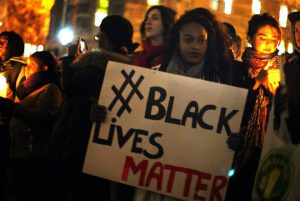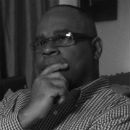 “All of us growl like bears, and moan sadly like doves; we hope for justice, but there is none, for salvation, but it is far from us.” Isaiah 59:11 (NASB)
“All of us growl like bears, and moan sadly like doves; we hope for justice, but there is none, for salvation, but it is far from us.” Isaiah 59:11 (NASB)
I recently undertook a rather judicious study of the Guiding Principles of the entity known as Black Lives Matter (or BLM).
In reading carefully through each of the organization’s 13 precepts, I was surprised by the extent to which many of the words and phrases used to describe them have either a direct or indirect parallel in biblical theology.
This is not to suggest that the dogma to which BLM subscribes has its origins in biblical Christianity.
That is not what I am positing at all.
In fact, if I were pressed on the matter, I would say without equivocation that the approach BLM has adopted in its attempts to bring about the kind of world it envisions, is more closely aligned with the philosophy of Karl Marx than Jesus Christ.
I am saying only, as a collective ethos, that much of what BLM aspires to achieve is rooted in ideals that are not totally foreign to the pages of sacred Scripture (e.g. justice, equity, love, community, and so on).
On the surface, the principles that guide the BLM movement appear quite laudable.
Who of us would argue that the world in which we live would not benefit from each of us “respecting and celebrating difference(s) and commonalities,” “lovingly and courageously working vigorously for freedom and justice,” and being “committed to practicing empathy”?
But as admirable as these pursuits may appear at first glance, it is incumbent upon us to look deeper.
Much deeper.
A Matter of Context
Every civil society that has ever existed on the continuum of human history has been established within the framework of a moral or ethical paradigm of one form or another.
To that extent, that BLM, by virtue of the aforementioned Guiding Principles, holds to a particular view of what a just and righteous world should consist of is nothing new. Since the days of the Garden of Eden, mankind has been engaged in an incessant search to reclaim what was lost as a result of the sin of our first parents (Genesis 3:22-24).
It is that same quest that serves as the impetus for BLM developing the Guiding Principles it believes are solutions to the problems of social justice facing us today.
But solutions are not what we should be concerning ourselves with.
Not yet anyway.
“A right view of God and the world to come requires that we have also a right view of the world in which we live and our relation to it. So much depends upon this that we cannot afford to be careless about it.” – A.W. Tozer, Culture: Living as Citizens of Heaven on Earth, p. 118
Before we can begin to consider how to redress the grievances being raised by BLM, we must go back to the beginning – to why an organization like BLM exists in the first place.
The genesis of BLM lies not in the fact that “black lives are systematically and intentionally targeted for demise” or the impact of the “Western-prescribed nuclear family structure” on impeding the development of “black villages” or the lack of “Black women affirming safe spaces.”
None of those issues is actually the problem.
We like to think they are, but they aren’t.
That BLM exists at all is attributable solely to the fact that there exists no objective context for determining how terms such as justice, equality, and fairness should be defined.
It is this absence of context that is the real problem.
“Lawlessness is lawlessness. Anarchy is anarchy is anarchy. Neither race nor color nor frustration is an excuse for either lawlessness or anarchy.” – Thurgood Marshall, Associate Justice U.S. Supreme Court, 1967-1991
The “struggle”in which BLM is engaged is not all that different than any predecessor social justice movement our nation has experienced.
Think about it.
At its most foundational level, the fight over the abolition of slavery was a fight over the context of personhood. Conversely, the fight over granting blacks the right to vote was a fight over the context of human rights. Likewise, the fight over the legalization of same-sex marriage was a fight over the context of equality. The same can be said concerning the ongoing fight over abortion which, at its core, is a fight over the context of life.
The question of context is germane not only to issues that concern us collectively as a nation, but as individuals as well.
We raise our children within a context of parenting. We go to our jobs within a context of work ethic. We establish loving relationships within a context of mutual commitment. We manage our household finances within a context of standard of living. We help the less-fortunate within a context of charity. Even the choices we make about the foods we eat and the clothes we wear are made not in a vacuum, but within the subjective context of what are our personal preferences for certain foods and styles of fashion.
This is not an exhaustive list, of course.
There are any number of other examples that I could cite.
The point I am making is irrespective of the tactics being employed by BLM to achieve its stated goals – or whether or not you or I concur with those tactics – until the question of context is settled, no amount of “guiding principles” will bring to fruition the kind of change BLM – or any other social justice movement for that matter – is seeking.
A Matter of (Guiding) Principles
There is a certain dualism at work within the Black Lives Matter movement which I find both encouraging and disheartening at the same time.
Though I could not disagree more with an agenda that is so thoroughly rooted in Marxist ideology, I can somewhat appreciate the fact that BLM is desirous of a world where justice and equity are a normal way of life.
But this Nirvana-esque worldview is not unique to BLM.
Every day countless millions, if not billions, of people around the world strive in vain to create a similar Promised Land as the one visualized by BLM.
And though the world being dreamed of by these multitudes may not be built upon the same ideological pillars as those endorsed by BLM – globalism, collective value, restorative justice, etc. – the aim is nonetheless the same: a world in which righteousness dwells and where sin (as they define it) is no longer a reality.
The only difference between the world they see and the one BLM proposes, is the contextual framework through which they hope to translate their empyrean illusion from imagination to manifestation.
“What is the good of telling the ships how to steer so as to avoid collisions if, in fact, they are such crazy old tubs that they cannot be steered at all? What is the good of drawing up, on paper, rules for social behavior, if we know that, in fact, our greed, cowardice, ill temper, and self-conceit are going to prevent us from keeping them? I do not mean for a moment that we ought not to think, and think hard, about improvements to our social and economic system. What I do mean is that all that thinking will be mere moonshine unless we realize that nothing but the courage and unselfishness of individuals is ever going to make any system work properly. It is easy enough to remove the particular kinds of graft or bullying that go on under the present system; but as long as men are twisters or bullies they will find some new way of carrying on the old game under the new system. You cannot make men good by law; and without good men you cannot have a good society. This is why we must go on to think of the second thing: of morality inside the individual.” – C.S. Lewis, Mere Christianity
What many advocates of the Black Lives Matter agenda fail to realize is, yes, there is a better world to come; but it will not be brought to fruition by conforming to a list of ideological beatitudes.
That “guiding principles” thing has been tried before, you know, and look how that turned out (Exodus 32).
But there is hope.
And that hope is found in Jesus Christ.
The Heart of the Matter
What has been missing in the discussion about Black Lives Matter is context.
Terms like injustice, racism, and inequality must be defined within the framework of an objective point of reference.
Namely, the word of God.
“But now in Christ Jesus you who formerly were far off have been brought near by the blood of Christ. For He Himself is our peace, who made both groups into one and broke down the barrier of the dividing wall, by abolishing in His flesh the enmity, which is the Law of commandments contained in ordinances, so that in Himself He might make the two into one new man, thus establishing peace, and might reconcile them both in one body to God through the cross, by it having put to death the enmity.” – Ephesians 2:13-16 (NASB)
Only the gospel of Christ can put into context the unrighteousness we see in the world today.
It is the objective truth of the gospel that provides a reasoned response to the activist salvation promulgated by BLM, and the promissory mirage that we can somehow save ourselves from ourselves.
I suppose guiding principles are all well and good if all you’re attempting to do is change someone’s mind.
But what if you’re proposing to change someone’s heart?
What then?
After all, heart change is really the goal.
Isn’t it?
 Darrell B. Harrison is a Reformed Baptist, theologian, U.S. Army veteran, and blogger. He blogs at JustThinking.me.
Darrell B. Harrison is a Reformed Baptist, theologian, U.S. Army veteran, and blogger. He blogs at JustThinking.me.
The views expressed in opinion articles are solely those of the author and are not necessarily either shared or endorsed by Black Community News.
 CURE News and Clergy Blog News and Commentary for Christians
CURE News and Clergy Blog News and Commentary for Christians




The benefit of careful behind the curtain examination is priceless. Thank you !!
It is an astute observation that much of the rhetoric of the BLM reflect principles found in the Holy Word of God. To attract the unsuspecting Bible believing Christian, they must speak in language familiar to them and resonate with their understanding of justice, and righteousness. The strategy of deception seeks to blend truth with its false narrative. The BLM is an organization that seeks to disrupt and transform the system. Their change is the replacement of our Judeo-Christian heritage to one of secular humanism shaped in Marxism. This is a dangerous organization hell bend on destroying our nation. COL 2:8